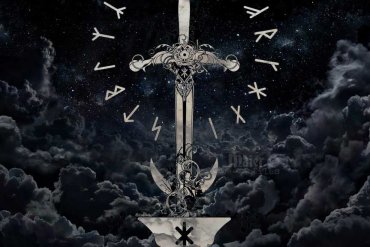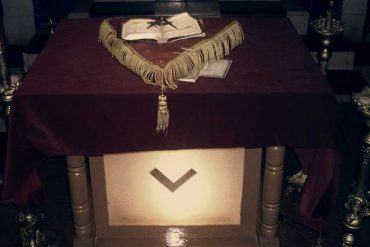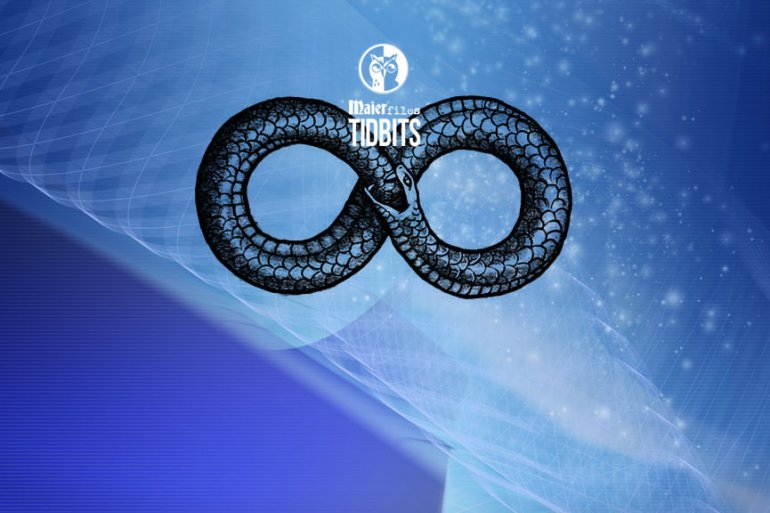Warning: Major spoilers ahead for “Maier files” Somewhere in central Europe dwells a very ancient society known by its Gothic name: Gards Aúirkeis, or the house of the Chalice. Some claim that its members protect an ancient knowledge and they have access to the wisdom of a lost civilization, others claim they form an ancient witch coven with roots going back in time as over 2000 years to the ancient Goths and even far beyond...
Why should we bother to work with gods and goddesses in the first place? Almost every religion includes some form of mythology, from the earliest and most primitive practices to the more modern and “scientific” variants, which tend to disguise their myths as symbology or history. It is obvious that these god figures and their stories, whatever one chooses to call them, are important and meaningful to humanity, a vital and intrinsic part of our...
Meister Eckhart (the thirtheenth-century German mystic) once said, “if you fight your death, you’ll feel the demons tearing away your life, but, if you have the right attitude to death, you will be able to see that the devils are really angels setting your spirit free. In the ancient belief systems, the being who guides the human spirit through the underworld and helps negotiate the way past the guardian demons is the god of planet Mercury. In the Mystery schools […]...
Samhain is a time to journey to the dark side. Now that the days shorten quickly, we journey to the shadow lands to commune with the ghosts of our past. Visiting what has died in us, express our longing and loss, and through that expression find healing … Third Festival The last days of Octobre the Third Festival of the Harvest also known as Festival of the Dead, All Saints, Ancestors Night, Feast of the...
Hrafn The Bird Goddess is believed to be the earliest and best-documented deity. During the Paleolithic period (Old Stone Age), carved figurines and cave paintings began to appear in a vast area that stretched from the Pyrenees of France to Lake Baikal in Siberia, just north of Mongolia. Crows are mentioned in the mythology of many cultures throughout the world and are frequently depicted as guides for traveling between the worlds. In European fables, crows...
Hella, Hel, known to all Germanic peoples, including the Goths as Hellarunester. A Gothic word for “witch” was Haljoruna. The name itself stems from a root meaning “to hide”. The word Hellirunar describes people who ‘rune’ (Speak, sing, whisper) with Hel/Helja, the goddess and realm of the underworld. “Hell”, in its original meaning is the hidden realm, the dark and foggy place where the dead and unborn dwell. Often the term is used in a sinister meaning. The bishop Wulfila […]...
Keep this story in mind too, as the Maier Files huge storyline will continue. Surprising links exist with historical battles and quests. As said before, there’s always more than meets the eye. The tale of Taliésin is written down in the french book “Bélisama ou l’Occultisme celtique” by Ernest Bosc (1895). Belisama or Belisana is a supreme Celtic Goddess, and the virgin mother, more on that in another post. The legend of the famous celtic...
Of all kinds, the Altar is one of the most common pieces of lodge furniture in secret societies, usually placed at the center of the lodge room, draped with an altar cloth, and provided with one or more symbolic objects. The existence of altars in lodge rooms is one of the facts most often pointed out by Christian critics of secret societies to claim that the latter practice a non-Christian religion. In some cases this...
All numbers have meanings, and different meanings within different cultures. But there is one number that seems to cross cultures, transcending religious and ethnic boundaries with its underlying meaning of immortality: Eight – 8 – . To the Egyptians, number eight was the most magical of numbers and meant ‘balance’ and ‘cosmic order’. According to Tim Wallace-Murphy and Marilyn Hopkins, the authors of Rosslyn, eight sacred sites formed a great cyclical ritual performed by Egyptian initiates. The initiates all received […]...
Apollo, the Bearer of Light, patron of poets and travellers, would never abandon his own in distress. He himself had become an outlaw, even seen as the Devil. But as he was not the Devil, he watched over, in accordance with the celestial laws, the forests and the routes. On the bridle of his charger, he left his carbuncle shining like the sun. When one of his minstrels died, he carried him above the clouds...









